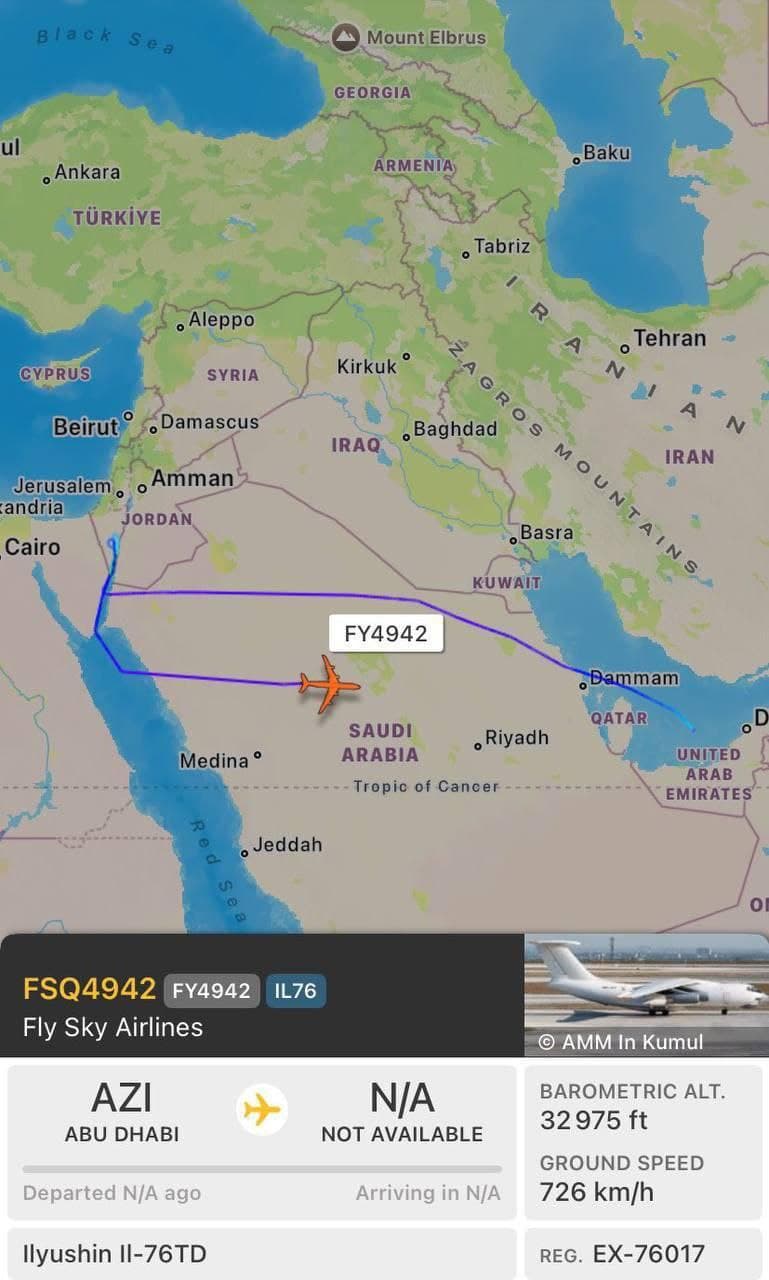In a significant development that has stirred regional tensions, a UAE-operated Ilyushin Il-76 cargo plane landed at Israel’s Ramon Airport earlier today before returning to Abu Dhabi. This flight, which departed from Al-Reef Air Base, marks a reported first for UAE-Israel aviation relations since the normalization of ties between the two nations in 2020. However, the aircraft"s history of arms deliveries has raised eyebrows, leading to speculation about the nature of its cargo.
Details of the Flight
The Ilyushin Il-76, a heavy transport aircraft, is known for its capacity to carry substantial cargo, including military supplies. While the exact nature of the cargo remains unconfirmed, the flight"s timing and origin have prompted questions about potential arms supplies to Israel amid ongoing regional conflicts. Reports indicate that the plane landed at Ramon Airport, a key military and commercial airfield in southern Israel, before making its return trip to Abu Dhabi.
Israeli officials have yet to release a statement regarding the cargo or the purpose of the flight, leaving the international community in suspense. The UAE"s involvement in this operation adds another layer of complexity to the already intricate geopolitical landscape in the Middle East.
What This Means for Regional Dynamics
The landing of the UAE cargo plane in Israel could signify a shift in military logistics and alliances in the region. Analysts suggest that this event may reflect an increasing military collaboration between the UAE and Israel, particularly against the backdrop of shared concerns over Iran"s influence in the region. The normalization of relations between the two countries has already led to enhanced cooperation in various sectors, including defense.
Moreover, this incident underscores the delicate balance of power in the Middle East, where military support and alliances are often fluid. The potential for the UAE to supply Israel with arms could provoke reactions from neighboring countries, particularly Iran, which views any strengthening of Israeli military capabilities as a direct threat. As previously reported, similar situations have led to escalated tensions in the past, making this flight a focal point for future diplomatic discussions.
Next Steps and Future Implications
As the situation develops, the international community will be closely monitoring responses from both the UAE and Israel, as well as reactions from other Middle Eastern nations. Analysts expect that further details about the cargo will emerge, potentially leading to diplomatic repercussions or calls for transparency from various stakeholders.
In the coming days, it will be crucial to observe how this incident impacts ongoing discussions regarding military cooperation in the region. The potential for increased arms supply to Israel may also prompt neighboring countries to reassess their defense strategies, further complicating the already tense political climate. As seen in earlier coverage of military engagements in the region, such developments can lead to significant shifts in alliances and power dynamics.
For those seeking to understand the broader implications of this event, it is advisable to stay updated with recent developments in Middle Eastern geopolitics, as the ramifications of the UAE"s cargo flight may unfold in unexpected ways. More information on related issues can be found in our article on recent developments regarding international relations.


![[Video] Heavy clashes and gunfire reported in Baghdad, Iraq](/_next/image?url=%2Fapi%2Fimage%2Fthumbnails%2Fthumbnail-1768342239932-848qsh-thumbnail.jpg&w=3840&q=75)




![[Video] Gunfire between Iraqi security forces and Sadr militias in Baghdad](/_next/image?url=%2Fapi%2Fimage%2Fthumbnails%2Fthumbnail-1768343508874-4redb-thumbnail.jpg&w=3840&q=75)
